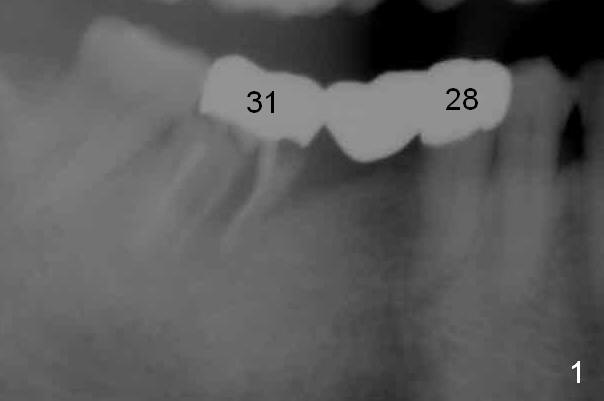



 |
 |
 |
|
 |
Teeth & Alzheimer's Disease
Mrs. Liu in her late 60s used to have 2 bottom bridges (Fig.1: #28-31 and Fig.2: #18-20). When she loses the 1st one (Fig.2: #28-31), she seeks dental treatment because she cannot chew well. Before we have a chance to place 3 implants to replace the missing teeth (Fig.4), she has pain associated with one of supporting teeth of the other bridge (Fig.2: #18) because of a big cavity (red area). That bridge is also loose because of exclusively chewing on that side. Part of the bridge needs to be removed (Fig.3: #18,19). Ultimately, she is going to have 4 implants for normal chewing (Fig.4 red new teeth).
More importantly when we have a complete set of teeth, we eat normally. At the same time, our brain is fully stimulated. The muscles for chewing are closely related to our brain/skull. With normal chewing, our brain is kept from degenerating as we age. Medical studies have shown that people who do not have teeth tend to have higher chance to have Alzheimer's disease than those who have teeth.
Return to
Implant
Xin Wei, DDS, PhD, MS 1st edition 04/12/2015, last revision 05/03/2015